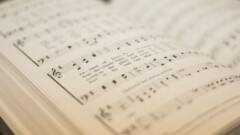I am in the midst of a series of articles on the seven ecumenical councils of the early church. These councils commenced with the First Council of Nicaea in 325 and concluded with the Second Council of Nicaea in 787. Between these two events were five more, each of which attempted to understand and establish a unified Christian theology.
In this series we are taking a brief look at each of the seven councils. For each one we are considering the setting and purpose, the major characters, the nature of the conflict, and then the results and lasting significance. We continue today with the fourth council, the Council of Chalcedon.
Setting & Purpose
In 449, a Second Council of Ephesus was convened because of the excommunication of a monk named Eutyches, who taught that Christ, after his incarnation, had only one nature. The council itself devolved into drama when those who supported Eutychus, led by Dioscorus and supported by the Roman Emperor Theodosius II, unilaterally and forcefully asserted their doctrine over against those who held the orthodox view that Christ has two natures—one fully human and one fully divine—which exist in hypostasis in one person. When news of the council reached Rome, Pope Leo immediately termed it Latrocinium (a “robber council”).
When Marcian, an orthodox Christian, became emperor, he wished to convene another council in order to resolve the turmoil that the Second Council of Ephesus had stirred up. That council met from October 8 to November 1, 451, in Chalcedon, now a district of modern-day Istanbul. It was held here rather than in Italy because of the pressing threat to the Roman Empire from Attila and his Huns.
Major Characters & Conflict
Of the 350 to 500 bishops present, two stand out as the major characters: Eutyches and Dioscorus. Eutyches was an aged and influential monk from Constantinople. Because of his unorthodox teachings about Christ he had already been condemned as a heretic in 448 by a local synod in Constantinople. Dioscorus became Bishop of Alexandria after Cyril died in 444. When Eutyches was initially excommunicated, Dioscorus came to his defense. Eventually he would preside over the Second Council of Ephesus where he strong-armed the assembly to restore Eutyches and depose those who had excommunicated him.
The Conflict
Eutyches’ doctrine appeared to be an overcorrection to the heresy of Nestorius (see The Council of Ephesus). Leo Davis says, “Since he was a confused and muddled thinker, his doctrine was far from clear and consistent.” In essence, though, he taught that Christ had two natures before the Incarnation—one human and one divine—and that in the Incarnation these two natures became one. “He hated the idea of two natures in Christ after the Incarnation because he understood nature to mean concrete existence. To affirm two natures was for him to affirm two concrete existences, two hypostases, two persons in Christ.”
The Council of Chalcedon was forced to clean up the mess caused by the Second Council of Ephesus and they did this by reaffirming the creeds of previous ecumenical councils and other expressions of faith which had been deemed orthodox (such as Cyril’s second letter to Nestorius and a tome by Pope Leo which summarized the Christology of the West). They also put on trial before the council Dioscorus and any other bishops who had supported the decisions of the Second Council of Ephesus.
Finally, they developed a creed that would restate orthodoxy for a new generation and clarify it against the alternate views which had been battled through up to this point (Arianism, Nestorianism, and now Eutychianism).
The Result
Dioscorus was tried, found guilty of abusing his priestly authority (most specifically at the Second Council of Ephesus), and defrocked. The council then prepared and affirmed a confession which denied a single nature of Christ and reaffirmed that he has two natures—a human and a divine—which coexist in hypostasis in his one person:
Following, then, the holy Fathers, we all unanimously teach that our Lord Jesus Christ is to us One and the same Son, the Self-same Perfect in Godhead, the Self-same Perfect in Manhood; truly God and truly Man; the Self-same of a rational soul and body; co-essential with the Father according to the Godhead, the Self-same co-essential with us according to the Manhood; like us in all things, sin apart; before the ages begotten of the Father as to the Godhead, but in the last days, the Self-same, for us and for our salvation (born) of Mary the Virgin Theotokos as to the Manhood; One and the Same Christ, Son, Lord, Only-begotten; acknowledged in Two Natures unconfusedly, unchangeably, indivisibly, inseparably; the difference of the Natures being in no way removed because of the Union, but rather the properties of each Nature being preserved, and (both) concurring into One Person and One Hypostasis; not as though He were parted or divided into Two Persons, but One and the Self-same Son and Only-begotten God, Word, Lord, Jesus Christ; even as from the beginning the prophets have taught concerning Him, and as the Lord Jesus Christ Himself hath taught us, and as the Symbol of the Fathers hath handed down to us.
The council also issued 28 canons regarding church discipline and administration.
Lasting Significance
While the council did have some lasting significance, Leo Davis points out that, “As with the Creed of Nicaea, one hundred and twenty-five years before, the definition of Chalcedon was not the end but the intensification of controversy.” The intensification of this controversy would lead to further disagreements and taking of sides so that by 484 Felix III, Pope of Rome at that time, would decree Acacius, the archbishop of Constantinople, “by a sentence pronounced from heaven … ejected from the priestly office.” Acacius would respond by erasing Felix’s name from the church’s diptych, thus symbolizing the breaking of communion with him. Within thirty-three years, because of the decisions of these councils, there would be a full schism between the churches of the East and the West.









